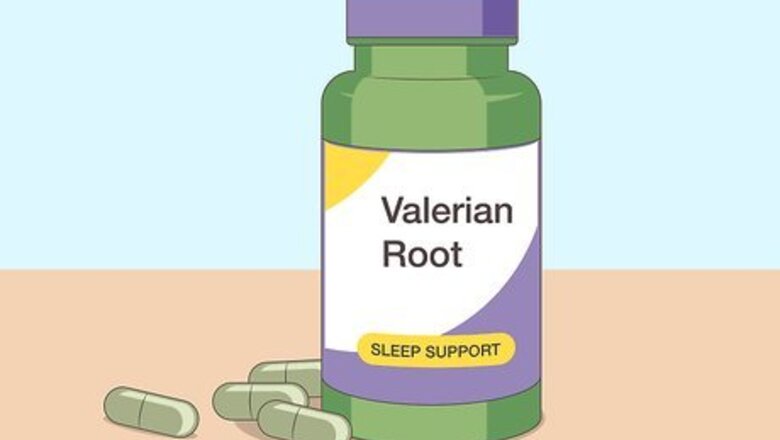
views
Herbs That Might Help
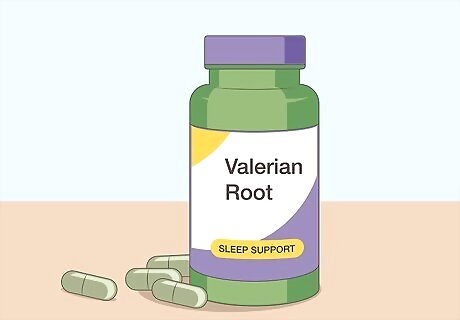
Take valerian root to fall asleep faster. This plant is a popular herbal remedy. It could help you fall asleep faster. It may also help relieve anxiety and stress. For the best results, try taking this herb daily for 2 weeks to see if you notice a difference. Valerian comes in tablet, liquid, or tea form. It’s uncertain which type works best for insomnia.
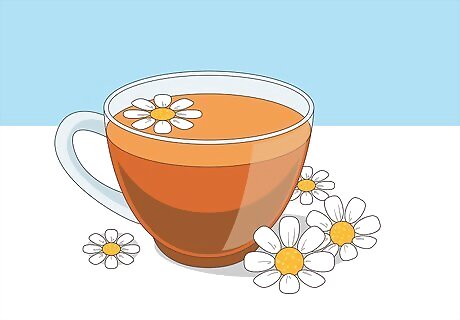
Have chamomile before bed. Chamomile is another popular herbal remedy for anxiety, stress, and insomnia. It could help lull you to sleep if you take it before bed. Chamomile is in the same family as ragweed and pollen, so don’t use it if you have allergies.
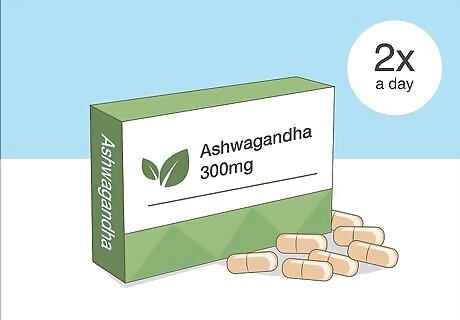
Try ashwagandha to improve sleep quality. This herb has a weird name, but it might have all kinds of benefits. One of those potential benefits is improved sleep. Try taking 300 mg of ashwagandha twice a day for 10 weeks to see if your sleep quality improves. Ashwagandha might also help relieve anxiety, but results are mixed.
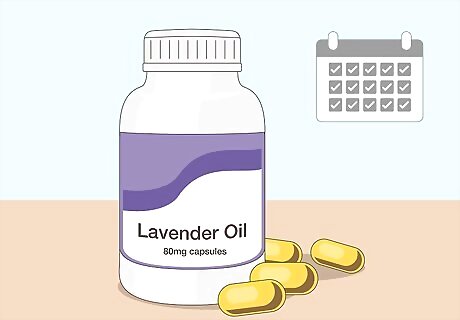
Stay asleep longer with lavender oil. Not only does lavender smell great, but it also might help you sleep better. Taking 80 mg of lavender oil daily might fight insomnia and lull you to sleep faster. Lavender also works as an anti-inflammatory, so it might help if you experience pain like arthritis. Lavender is also used in aromatherapy, and small studies suggest this might help treat insomnia as well. If you'd like to try it for yourself, try putting some lavender oil into a diffuser and leaving it on while you're in bed.

Use lemon balm if stress is causing your insomnia. Stress and anxiety are common causes for insomnia, and lemon balm might help relieve these issues. Try taking a 600 mg daily dose of Cyracos, a supplement containing lemon balm, for 15 days to see if you sleep easier.
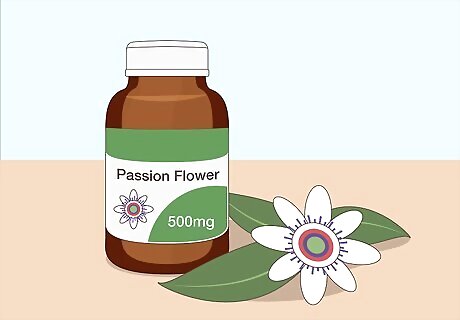
Try passionflower. This is another popular herbal sleep remedy. A study using rats showed that 500 mg of passionflower daily for 7 days improved sleep quality. This could work for you as well. Passionflower also comes in tea form, so you can try this as well.
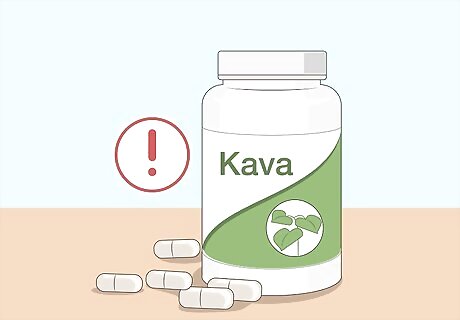
Avoid kava unless your doctor says it’s safe. Kava is another common herbal remedy and it might help fight insomnia. However, it also causes side effects and could damage your liver, so it’s important to only take it with your doctor’s approval.
The Best Ways to Take Herbs
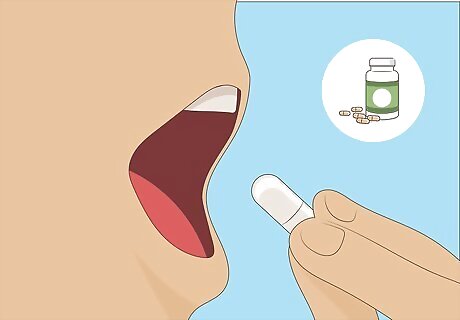
Take oral supplements for the strongest dosage. Most herbs come in tablet or pill form as dietary supplements. This could provide the strongest and most concentrated dose, so pill types might be best if you're trying to get to sleep. All herbal supplements have different dosing instructions, so make sure you follow the directions to avoid taking too much.
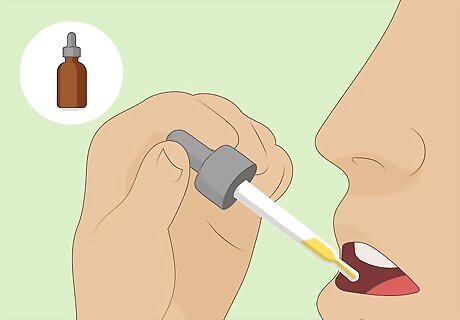
Try liquid extracts for a quick dose. Most herbal supplements also come in liquid in tincture forms, so you can try these as well. You can also use these for a direct dose, so take them according to the product instructions.
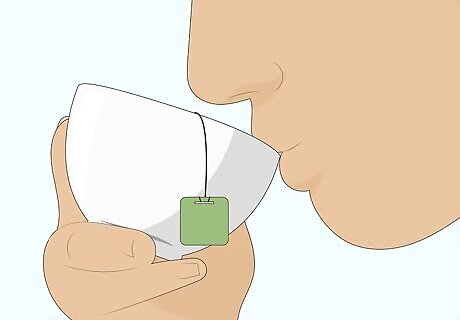
Sip tea for a relaxing effect. Most herbs also come in tea form. Sipping on herbal tea can be very relaxing, so this could help you get to sleep at night. The brewing instructions and steeping time for herbal tea varies, so follow the directions with the tea you use. Most herbal teas are naturally caffeine-free. However, make sure you check to confirm that there's no caffeine or you'll have trouble sleeping.
Using Herbs Safely

Talk to your doctor before taking any herbal supplements. While herbal remedies are usually harmless, they still interact with everyone differently, especially if you take medication or have any health issues. Always ask your doctor if herbal treatments are right for you before starting.
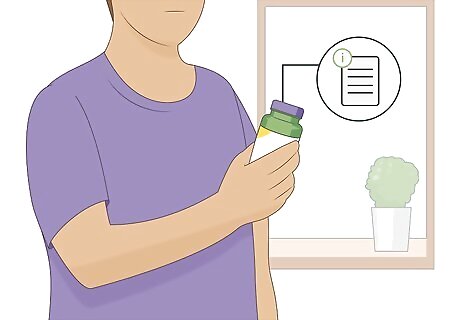
Read all of the instructions and follow the recommended doses. The dosages on all these herbal treatments might vary, so always check the instructions first. Follow the recommended dosage unless your doctor tells you to take a different amount. If you aren’t sure about the right dose for you, ask your doctor or pharmacist for guidance.
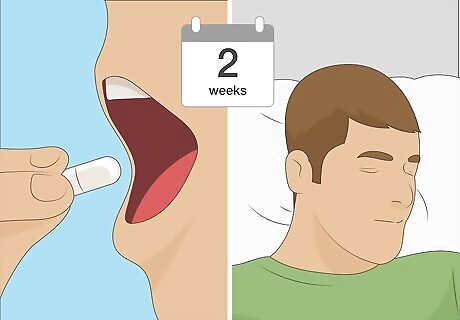
Take herbal sleep aids for 2 weeks at a time. Herbal sleep aids are temporary solutions and aren’t intended as long-term treatments. Many of them have only been studied in short-term studies, so the long-term effects are well-known. In general, don’t take them for longer than 2 weeks unless your doctor says it’s okay. If 2 weeks go by and you’re still experiencing insomnia, you should see your doctor to see if any health issues are causing your sleep problems.
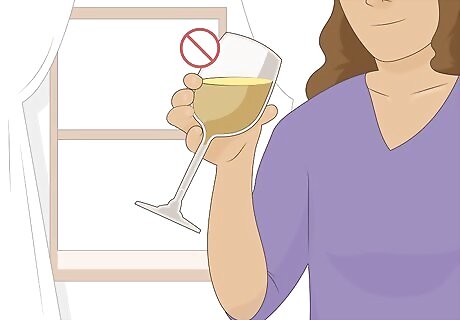
Don’t take any sleep aids with alcohol. Alcohol can increase the effects of sleep aids, which could be dangerous. If you normally have a drink before bed, skip this if you’re taking any sleep aids to avoid side effects. Drinking alcohol before bed can disrupt your sleep anyway, even if you aren’t taking any sleep aids. It’s best to get out of this habit for the best sleep quality.
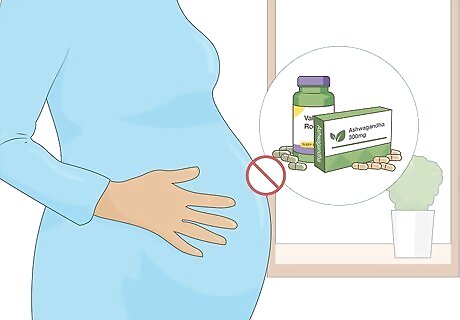
Avoid herbal sleep aids if you’re pregnant or nursing. It’s not clear how herbal remedies can affect babies, so it’s best to skip herbal sleep aids if you’re pregnant or nursing. If you’re having trouble sleeping while you’re pregnant, talk to your doctor for recommendations on getting more sleep.



















Comments
0 comment